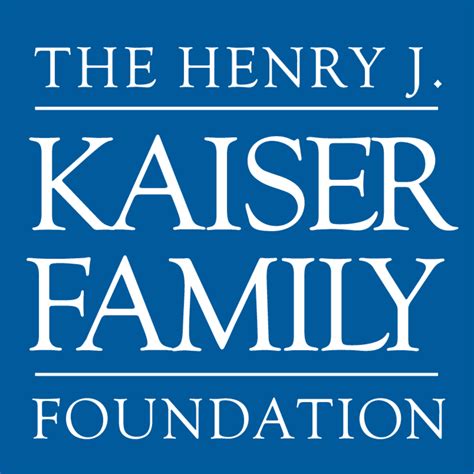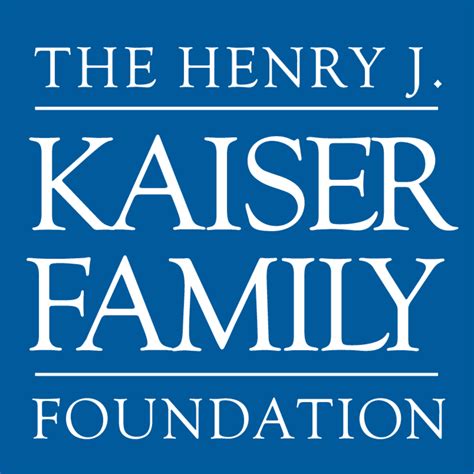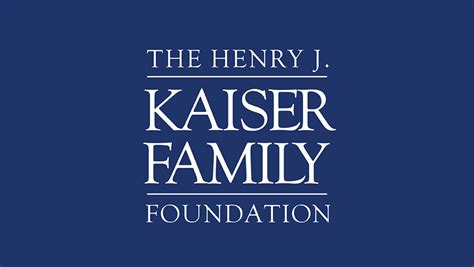Kaiser Family Foundation

The Kaiser Family Foundation is a non-profit organization that focuses on national health issues, as well as the U.S. role in global health policy. Unlike many other foundations, Kaiser Family Foundation is not a grant-making organization, rather it is dedicated to serving as a trusted source of information and analysis on health policy issues.
Established in 1948 by Henry J. Kaiser, the foundation has been playing a pivotal role in shaping health policy discussions for decades, both at the national and international levels. It is known for its in-depth research, impartial analysis, and meticulous tracking of health policy trends. This approach enables policymakers, journalists, and the general public to make informed decisions on critical health issues.
One of the foundation’s key strengths lies in its ability to present complex health policy information in an accessible and understandable manner. Through its extensive research and analysis, the foundation provides comprehensive reports, issue briefs, and fact sheets on a wide range of topics, including but not limited to, the Affordable Care Act (ACA), Medicaid, Medicare, healthcare markets, and global health. These resources are widely consumed by stakeholders across the healthcare spectrum, including policymakers, media, and the general public.
The Kaiser Family Foundation is also renowned for its public opinion surveys and polls, which offer valuable insights into the views and experiences of the American public on health issues. These surveys delve into topics such as healthcare access, costs, and quality, as well as perceptions of the healthcare system and health reform efforts. By capturing the pulse of the nation on these critical issues, the foundation contributes to a deeper understanding of the complex dynamics shaping healthcare policy.
Furthermore, the foundation’s commitment to improving health care and access to health care, particularly for vulnerable populations, is evident in its targeted programs and initiatives. For example, its work on HIV/AIDS, both domestically and globally, has been groundbreaking, providing critical research, analysis, and strategic support to help combat the epidemic.
Through its media fellowship programs, the Kaiser Family Foundation also plays a crucial role in enhancing the public’s understanding of health policy issues by supporting and training journalists. These fellowships empower journalists with the knowledge and resources needed to cover complex health stories with depth and accuracy, thereby contributing to a more informed public discourse on health matters.
The foundation’s structure includes several key programs and affiliates, each focusing on specific aspects of healthcare and policy. For instance, the Kaiser Commission on Medicaid and the Uninsured is dedicated to analyzing policies affecting low-income populations and the uninsured, while the Program on Medicare Policy focuses on issues related to the Medicare program and the health care needs of older adults and people with disabilities.
In the arena of global health, the Kaiser Family Foundation’s work is equally impressive. It conducts in-depth analysis and research on global health issues, including infectious diseases, reproductive and maternal health, and the role of the U.S. government in global health policy. This work is critical in informing decisions on global health investments and policies, ultimately contributing to improved health outcomes worldwide.
The foundation’s commitment to transparency and accountability is underscored by its operations. It ensures that all its work is independent and unbiased, with its research and analysis conducted by a team of experienced professionals who are experts in their fields. This commitment to objectivity has earned the Kaiser Family Foundation the respect and trust of policymakers, the media, and the public.
In conclusion, the Kaiser Family Foundation stands as a beacon of authoritative information and analysis in the health policy arena. Its dedication to uncovering the facts, providing impartial analysis, and educating both policymakers and the public makes it an indispensable resource. As the healthcare landscape continues to evolve, the foundation’s role in shaping discussions, informing policy, and contributing to better health outcomes for all is more critical than ever.
Impact of the Kaiser Family Foundation on Health Policy

Introduction to Health Policy Influences
The Kaiser Family Foundation’s influence on health policy is multifaceted and profound. By providing high-quality, unbiased information and analysis, the foundation equips policymakers with the evidence they need to make informed decisions. This section explores the various ways in which the foundation impacts health policy, from shaping public discourse to informing legislative actions.
Shaping Public Discourse on Health Issues
One of the foundation’s most significant contributions is its role in shaping public discourse on health issues. Through its research, surveys, and media programs, the foundation helps to frame the national conversation on healthcare, focusing attention on critical issues such as access, quality, and costs. By engaging the public in discussions about health policy, the foundation promotes a more informed and involved citizenry.
Informing Legislative Actions
The foundation’s work also directly informs legislative actions. Policymakers rely on the foundation’s analysis and research to understand the implications of proposed policies and to evaluate the effectiveness of existing laws and programs. This informed approach to policy-making is crucial in ensuring that health policies are evidence-based, equitable, and effective.
Supporting Global Health Initiatives
In the global health arena, the Kaiser Family Foundation plays a vital role in supporting initiatives aimed at combating infectious diseases, improving maternal and child health, and strengthening health systems in developing countries. The foundation’s global health policy work is geared towards informing U.S. global health policy and investments, ensuring that they are strategic, effective, and responsive to the needs of vulnerable populations worldwide.
Addressing Healthcare Disparities
The foundation is also at the forefront of efforts to address healthcare disparities and promote health equity. By analyzing policies and their impacts on different population groups, the foundation identifies disparities and advocates for policies that can help reduce them. This work is critical in ensuring that healthcare systems are fair, accessible, and effective for all, regardless of race, ethnicity, income, or geographic location.
Conclusion: A Lasting Impact
In conclusion, the Kaiser Family Foundation’s impact on health policy is profound and lasting. Through its commitment to providing high-quality information and analysis, engaging in public discourse, informing legislative actions, supporting global health initiatives, and addressing healthcare disparities, the foundation plays a pivotal role in shaping the healthcare landscape. Its contributions have been instrumental in informing policy decisions, promoting health equity, and improving health outcomes, both domestically and globally.
What is the primary focus of the Kaiser Family Foundation?
+The primary focus of the Kaiser Family Foundation is on national health issues, as well as the U.S. role in global health policy, providing information and analysis to inform health policy decisions.
How does the Kaiser Family Foundation contribute to global health policy?
+The foundation contributes to global health policy through in-depth analysis and research on global health issues, including infectious diseases, reproductive and maternal health, and the role of the U.S. government in global health policy.
What is the significance of the Kaiser Family Foundation's public opinion surveys?
+The Kaiser Family Foundation's public opinion surveys offer valuable insights into the views and experiences of the American public on health issues, contributing to a deeper understanding of the complex dynamics shaping healthcare policy.
Future of Health Policy: Emerging Trends and Challenges

The future of health policy is fraught with challenges and opportunities. Emerging trends, including technological advancements, demographic shifts, and evolving patient needs, will necessitate adaptive and innovative policy responses. This section explores some of the key trends and challenges that will shape the future of health policy, and how organizations like the Kaiser Family Foundation can contribute to navigating these complexities.
Technological Advancements in Healthcare
Technological advancements, such as telehealth, artificial intelligence, and precision medicine, are transforming the healthcare landscape. These innovations hold the potential to improve access, quality, and efficiency of healthcare services. However, they also raise regulatory, ethical, and equity concerns that policymakers must address.
Demographic Shifts and Healthcare Needs
Demographic shifts, including aging populations and changes in family structures, will influence healthcare needs and demands. Policymakers must consider these shifts when designing healthcare systems that are responsive, equitable, and sustainable.
Global Health Security and Pandemics
The COVID-19 pandemic has underscored the importance of global health security and the need for robust preparedness and response measures. Future health policy must prioritize international cooperation, infectious disease surveillance, and the development of global health infrastructure to prevent and mitigate the impact of pandemics.
Health Equity and Social Determinants of Health
Addressing health equity and the social determinants of health is crucial for achieving better health outcomes for all. Policymakers must consider the broader social and economic factors that influence health, including housing, education, and employment, when designing health policies and interventions.
Role of the Kaiser Family Foundation in Shaping Future Health Policy
The Kaiser Family Foundation, with its commitment to providing timely, unbiased information and analysis, is well-positioned to contribute to shaping future health policy. By continuing to track emerging trends, analyzing the implications of policy decisions, and engaging stakeholders in discussions about the future of healthcare, the foundation can play a vital role in informing and influencing health policy decisions that promote better health outcomes, equity, and well-being for all.
In the ever-evolving landscape of healthcare, the need for informed, equitable, and effective health policy is more pressing than ever. Organizations like the Kaiser Family Foundation, dedicated to advancing the public’s understanding of health policy and promoting evidence-based decision-making, are indispensable in this quest. As we move forward, the foundation’s legacy, built on a commitment to impartial analysis, public engagement, and the pursuit of better health for all, will continue to inspire and guide efforts to create a more just, accessible, and responsive healthcare system.
